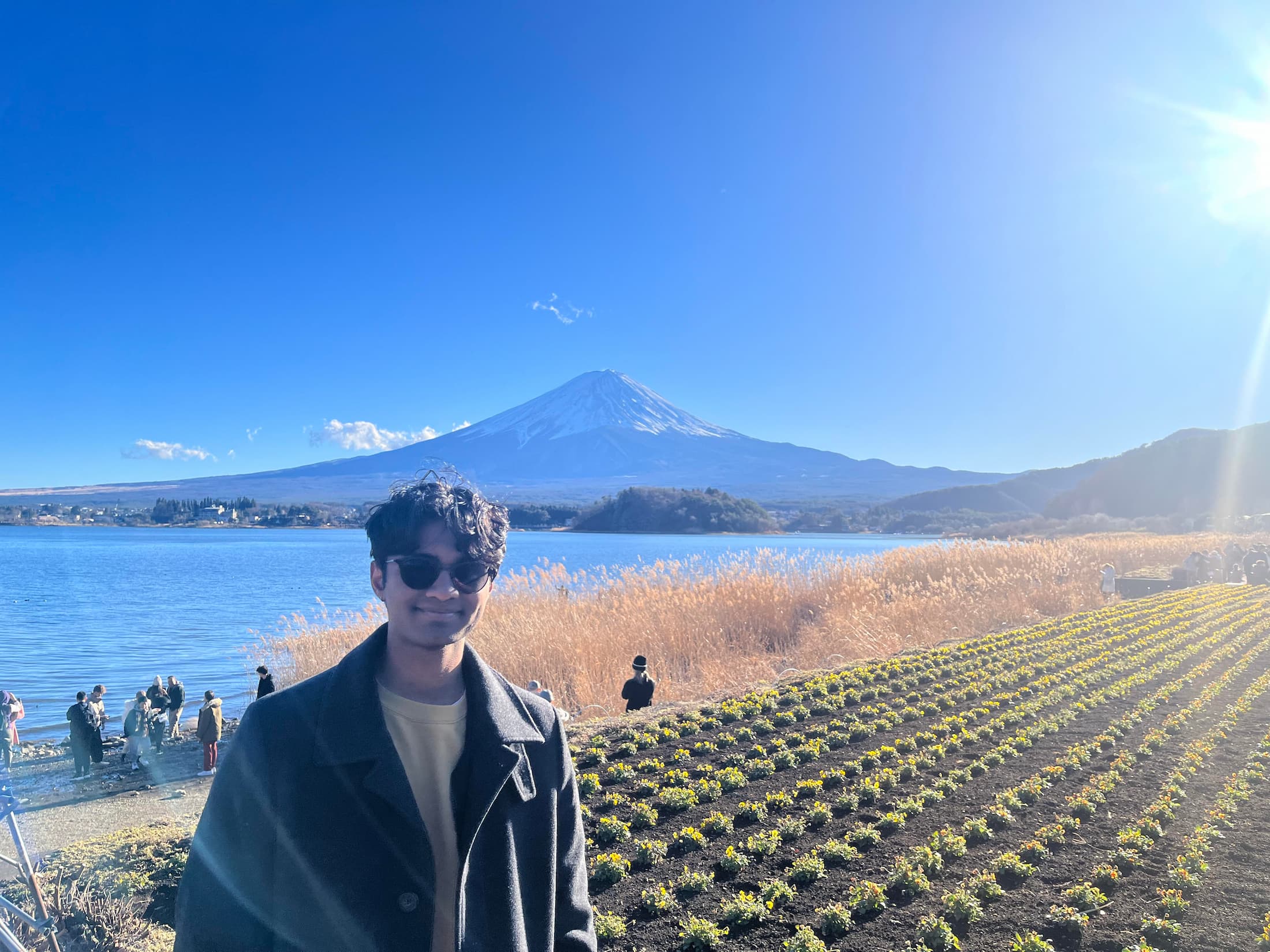Studying abroad is a transformative experience for many students, offering the opportunity to explore new cultures, gain a global perspective, and enhance academic pursuits. Vaibhav Ramaseshadri, an Engineering Physics undergraduate student, shares insights into his study abroad experience in Iceland and sheds light on the factors that influenced his choice of the Engineering Physics program.
Can you share a bit about your study abroad experience?
VR: I stayed in Iceland’s capital Reykjavik. I was there for three months. Throughout the trip, I went around Iceland to visit different aspects of the country including mountains and glaciers!
What inspired you to study abroad?
VR: I had always wanted to study abroad but never had a particular place in mind. When I saw that there was an opportunity in Iceland however I knew that I wanted to go there. I wanted to experience going to a different country by myself and seeing how life was there. As far as academic goals, I wanted to improve my programming skills and learn more about Iceland’s unique energy system and my program offered both of those opportunities.
How did you choose the University of Michigan for your undergraduate studies in Engineering Physics?
VR: U-M has some of the best physics education in the country and has the best nuclear engineering program. I knew that if I wanted to learn more about EP then U-M would be perfect for me. In addition, growing up as a kid who likes engineering in Ann Arbor, I had attended a lot of U-M engineering summer camps which I found to be a lot of fun and that particularly made me interested in the engineering program at U-M.
Can you share some insights into the application process for the University of Michigan and how you prepared for it?
VR: The U-M application takes a lot of factors into consideration, and I think that can put a lot of stress on prospective students (I know it did for me). Ultimately, I learned that I simply needed to present the most accurate version of myself. For example, when the application asked me to write about what attracts me to U-M. I had to learn to write about what attracts me to U-M and not what someone else tells me what attracts me to U-M. That aspect of being truthful about myself while also putting my best application out there was probably the biggest hurdle in the application process, but ended up being a very valuable skill.
What made you interested in the field of Engineering Physics in the first place?
VR: I always thought the idea of blending engineering with the pure sciences was always incredible. It allows us to provide a different perspective from other engineers which I think is very important. I also wanted to pursue the field of physics while gaining some sort of applicable skill which I believe is easily attainable through the Engineering Physics program.
Have you encountered any challenges or exciting opportunities within the Engineering Physics program?
VR: One challenge is that it’s definitely a “build your own course” type of program so you really have to put in time and energy to figure out what direction you want to take your physics education. There are also so many options that it can feel overwhelming, but the once you find your interests, it’s definitely a program that I think can cater to anyone. When choosing my focus area, I noticed the wide variety of options that were available in the EP program, from management engineering and finance to computer systems architecture, I think EP while challenging is an excellent opportunity for any engineering field.
Did your study abroad experience have an impact on your academic or personal development?
VR: I’d say more so personally, it really improved my independence and my outlook on the world. Academically, however, I still had to adapt to a different method of schooling and education which was a new experience that really helped me.
How do you balance the demands of an Engineering Physics program with extracurricular activities or part-time work?
VR: EP is very demanding as the course load can work out to be some of the most challenging in the university. The best thing to do is to take time out to do your hobbies so that you don’t crumble under the pressure of your Google colab notebooks or your weekly problem sets! The extracurricular activities I chose to do were ones which were my hobbies and that makes it easier for me to set time aside to do everything that I want to since my hobbies are now a weekly commitment. I think setting that time aside also forces you to work on your coursework and is very helpful for time management
What advice would you give to prospective students who are considering studying abroad or pursuing a degree in Engineering Physics at the University of Michigan?
VR: Be prepared to work hard. This is a very challenging program but at the same time it is one of the most rewarding things I have ever been a part of. You will learn a lot about science and engineering and it will be extremely enriching!
How has your study abroad experience and your major choice enriched your cultural understanding and global perspective?
VR: It opened my eyes to how we don’t always see the full picture of how people live when we go on vacation or for a visit to a country. While this was my first time visiting Iceland, I feel as though I learned a lot more about the people from staying in the country rather than visiting for a short period of time which was very inspiring to see.
